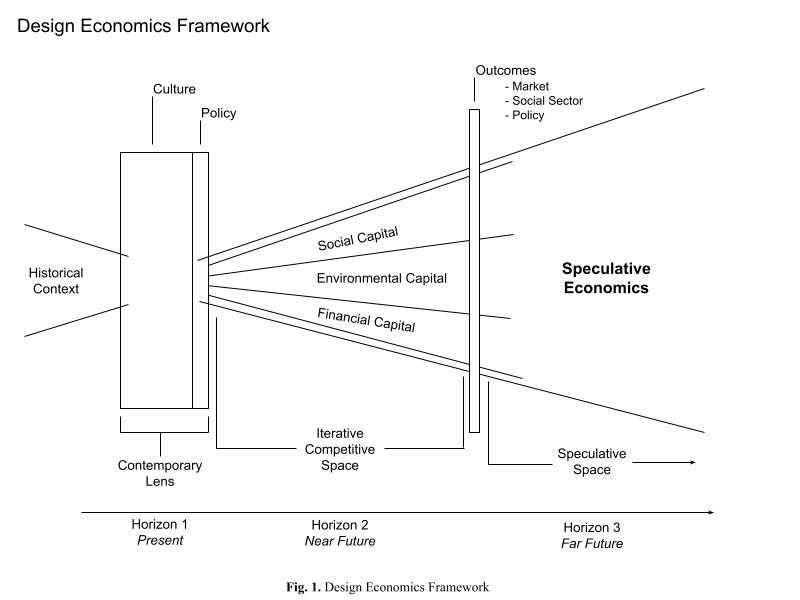The February issue of Compass magazine, the global voice of professional futurists, has just published an article by Institute for Economic Evolution founder, Vinny Tafuro. This quarterly magazine shares the diverse voices of professional futurists from around the world and is publicly available online for free.
Below is an excerpt from the article followed by the embedded full article.
Leveraging a Design Economics Framework to Disrupt Economics
“It is very bad in America to be right too early,” writes Sarah Kendzior in her book, They Knew. The tendency for novel ideas to be punished by the dominant paradigm in defense of the status quo is not new or limited by topic.
In economics, for example, the number of people excluded has been growing for decades. So much so, that the outcasts now outnumber the orthodoxy. Many of these outcasts have argued that the field of economics is woefully inadequate for addressing the “wicked problems” of a society that must plan for increasingly fast-approaching futures.
The Global Financial Crisis (GFC) catalyzed the collapse of broad, bipartisan support for neoliberal economic policy and faith in its market fundamentalism. The crisis helped launch a decade of civil and political unrest, exploited by neoliberal priorities baked into America’s dominant social media platforms – platforms whose executives were blindly directing the best minds of a generation to focus on making people click ads.
Outdated economic metrics effectively ordered the tech sector to colonize human attention instead of cultivating social capital. Furthermore, in America and around the globe, economic orthodoxy as it currently exists is actively impeding the ability of democracies to ward off growing threats of populism, authoritarianism, and theocratism. The unrest of this period also has provided a unique opportunity to forcefully clear away the legacy paradigm and replace it with a design framework.
Design Economics Framework
In order for a new approach to displace the existing orthodoxy, a collaborative and deliberate effort must be made that gathers and focuses the work of currently disparate disciplines, proposals, and people to design the new paradigm. Gathering and cultivating existing, emerging, and yet-to-be-created ideas will require a dynamic framework that continues to iterate and evolve the field of economics over time. This proposal for a Design Economics Framework borrows from and applies existing futures frameworks and methods in an effort to make the new framework more readily accessible and usable (see Fig. 1).

The concepts of Design Economics and Speculative Economics within the Design Economic Framework are rooted in three key tenets:
- Acknowledgment that social systems evolve from and respond to social and environmental realities–all paradigms have a lifespan;
- Emergent models demand inclusive, interdisciplinary approaches that account for dynamic systemic change–economics must refrain from punishing creativity; and
- Economic literacy informs social and political discourse–a free, equitable, and flourishing society requires economic literacy to avoid sliding into authoritarianism.
These three tenets – acknowledging change, embracing creativity, and cultivating literacy – have been absent from economics and are critical to establishing a modern understanding of how individuals and societies can flourish.
Read the Full Article in Compass
View Compass on the Association for Professional Futurists website.
